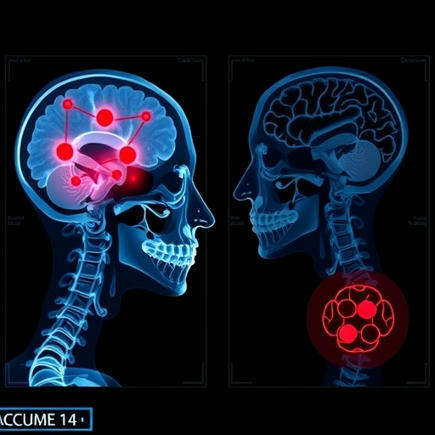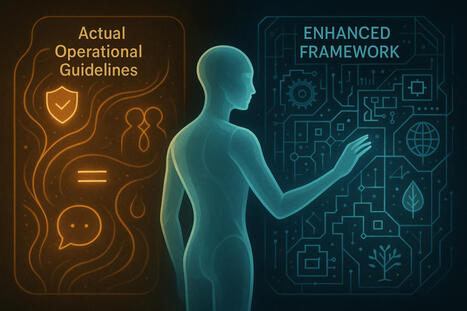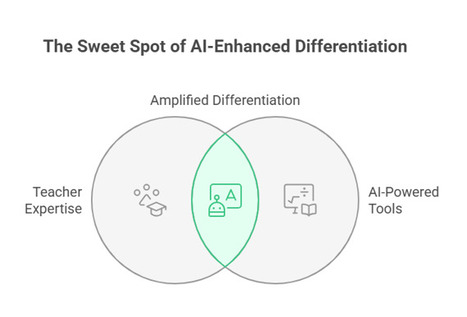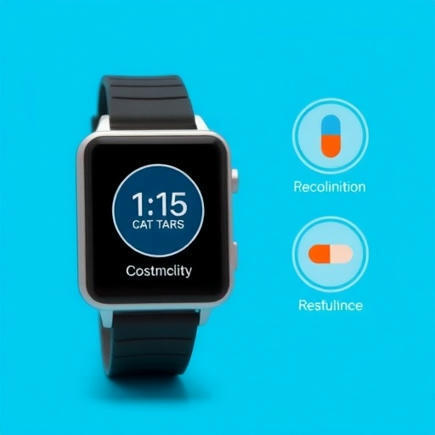 Your new post is loading...
 Your new post is loading...
In a landmark comparative study published in the Journal of Health Organization and Management, researchers from the University of Maine have embarked on a rigorous investigation to evaluate the diagnostic capabilities of artificial intelligence (AI) models against those of seasoned human clinicians...
Via Emmanuel Capitaine , Lionel Reichardt / le Pharmageek

|
Scooped by
Richard Platt
June 4, 3:39 PM
|

|
Scooped by
Richard Platt
June 4, 12:02 AM
|
Multi-Agent Generative AI (Gen AI) systems are reshaping the way enterprises design intelligent automation, handle decision-making, and optimize workflows across knowledge-intensive functions. By…
While people who have spent years cultivating their writing skills might bemoan the arrival of AI-assisted writing, there is also a much more optimistic way to view these changes. Until now, the ability to write well was inherently elitist. People fortunate enough to have the time and financial capacity to pursue higher education were better positioned to produce excellent writing.
Via Nik Peachey
In following along on a conversation via Linked In, I saw Shana V. White ask this question: How do you define "ethically"? Later, someone asks the question that Shana may really be asking in regards to AI, "What is ethical AI?" From my perspective, the questions raise the bigger issues. It reminded me of a…
Via Nik Peachey
The current research landscape may be messy and contradictory, but it illuminates a crucial truth: the impact of AI on education isn’t predetermined by the technology itself—it’s determined by the educational system we choose to implement it within.
Via Nik Peachey
There have been extensive evaluations of artificial intelligence (AI) systems for
narrow medical tasks, but more work is needed to systematically evaluate and deploy
AI systems that can perform a broad range of medical tasks. The medical training process
itself might offer a template for addressing this challenge. Clinicians undergo rigorous
education and training, progressing through stages of increasing responsibility and
autonomy. Similarly, generalist medical AI systems could be subjected to a phased
certification model before they are granted greater autonomy in patient care.
Via Lionel Reichardt / le Pharmageek
As educators, we’re constantly bombarded with new technologies promising to revolutionise our classrooms. Artificial Intelligence has certainly generated its share of both excitement and skepticism (and let’s be honest, a fair bit of eye-rolling too). However, beyond the debates and theoretical discussions, there are practical, immediate applications that can genuinely enhance our teaching practice today.
Via Nik Peachey
For a while, the comforting narrative went like this: AI won’t take your job. But someone using AI will. So, all you had to do was to use AI, and even if you lost your job you could take someone else’s?
Via Edumorfosis, Nik Peachey
When I compare the 7 years I had battling the cellphone in the classroom, vs almost an entire year of phone free schooling, there is no comparison. Our kids are smarter, more social, and more motivated to do the things they actually want to accomplish in this world when they don’t have a pavlovian vibration derailing their attention every 20 seconds.
Via Nik Peachey
Based on the theory of disruptive innovation, this paper looks at three case studies of genAI use in education representing different levels of disruptiveness: the sustaining enhancing innovation of combining genAI and flipped classrooms, the sustaining challenging innovation of genAI-aided active learning, and the disruptive innovation of the teacherless classroom.
Via Nik Peachey
|
Neurological conditions, including dementia, pose a major public health challenge, contributing to a significant and growing clinical, economic, and societal burden. Traditionally, research and clinical practice have focused on diseases like dementia in isolation.
Via Emmanuel Capitaine , Lionel Reichardt / le Pharmageek
AI, when intentionally integrated, offers unique opportunities to deepen critical thinking. AI-powered platforms can support inquiry-based learning, providing students with immediate feedback on the logic and coherence of their arguments or exposing them to multiple perspectives on contentious issues (Luckin et al., 2016). Advanced models can simulate debates, challenge students with counterarguments, and prompt metacognitive reflection: “Why do you believe this? What assumptions are you making? What evidence supports your claim?” In these cases, AI becomes a “thinking partner” rather than a shortcut or crutch.
Via Nik Peachey

|
Scooped by
Richard Platt
June 4, 2:45 AM
|
What was once considered a bad business venture, the 8008’s lasting legacy went on to drive the technological world we live in today.

|
Scooped by
Richard Platt
June 4, 12:00 AM
|
It starts with a sense that delivery is happening, but impact is not. That teams are busy, but progress is unclear. That AI pilots are everywhere, but transformation is nowhere. Executives sit in…
In recent years, the landscape of Parkinson’s disease management has been dramatically transformed by the advent of wearable technology.A groundbreaking systematic review, led by Packer, Debelle, Bailey, and colleagues, published in npj Parkinson’s Disease, illuminates how these devices are revolutionizing...
Via Emmanuel Capitaine , Lionel Reichardt / le Pharmageek
Schools are building innovative use cases for artificial intelligence that improve lesson planning and guide students into deeper creativity and critical thinking.
Via EDTECH@UTRGV, Nik Peachey
The governance of generative artificial intelligence (AI) technologies in medicine
has become a major topic of discussion due to concerns about their rapid development
and use, which have outpaced existing regulatory measures.1 Findings from a recent
large-scale survey underscore the urgency of renewed oversight, revealing that one
(20%) in five of the UK-based general practitioners surveyed use large language model
(LLM) chatbots for clinical tasks.2 Although much attention has been focused on popular
and widely available LLM-based chatbots, such as ChatGPT (OpenAI and Microsoft), addressing
unresolved challenges related to privacy, bias, accuracy, and accountability requires
a standardised frameworks that goes beyond the regulation of chatbot as conversational
tools and considers the wider AI capabilities for data generation.
Via Lionel Reichardt / le Pharmageek
The core purpose of education is to foster meaningful learning: developing students’ knowledge, skills, and critical thinking. Thus, the most pressing question is how ubiquitous AI assistance affects student learning and engagement with course material. There are valid concerns that easy access to generative AI may encourage academic shortcutting at the expense of learning. Writing an essay or solving a problem set is not busy work; it is structured adversity that develops reasoning, creativity, and resilience. If AI tools simply hand students the answers, they risk short-circuiting that developmental journey. Indeed, early evidence suggests some students are becoming less engaged in the learning process when AI is there to do the heavy lifting. This attitude is troubling: if a generation of students concludes that studying is futile because a chatbot can do it for them, education could face a crisis of engagement.
Via Nik Peachey

|
Scooped by
Richard Platt
May 19, 2:35 AM
|
If AI allows students to automate routine cognitive tasks – like information retrieval or ensuring that verb tenses are consistent – it doesn’t mean they’re thinking less. It means their thinking is changing.
Via Nik Peachey
In a landmark study poised to redefine the precision medicine landscape, researchers have successfully harnessed real-world data alongside advanced machine learning techniques to identify predictive subphenotypes that forecast clinical outcomes with unprecedented accuracy.
Via Emmanuel Capitaine , Lionel Reichardt / le Pharmageek
|






 Your new post is loading...
Your new post is loading...





























The integration of generative artificial intelligence (GAI) in education has been met with both excitement and concern. According to a 2023 survey by the World Economic Forum, over 60% of educators in advanced economies are now using some form of artificial intelligence (AI) in their classrooms, a significant increase from just 20% 5 years ago